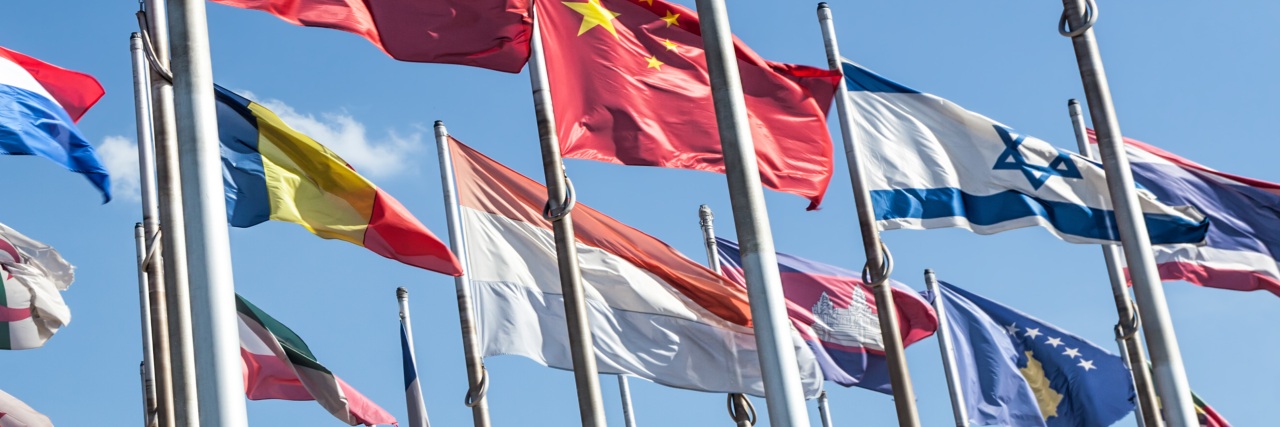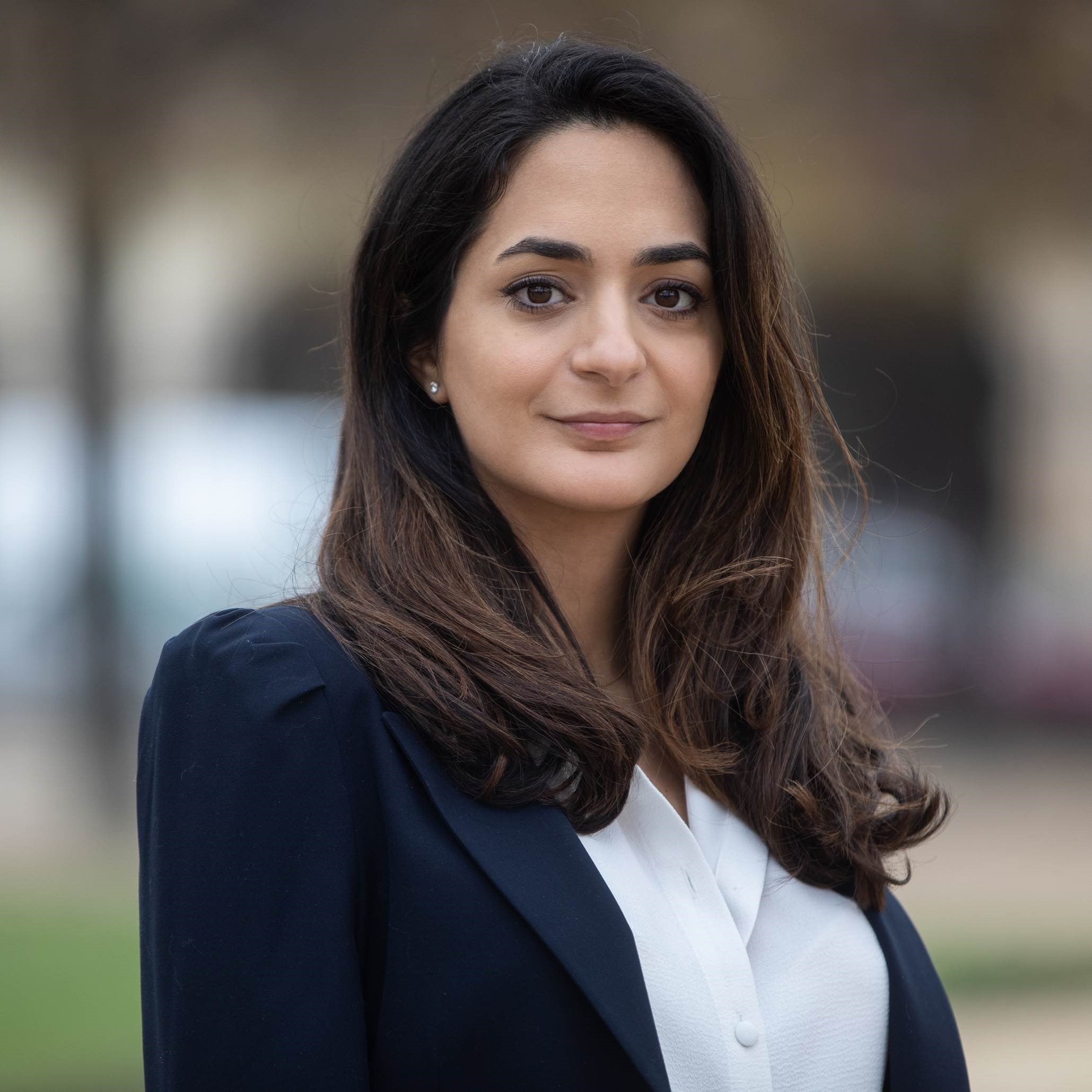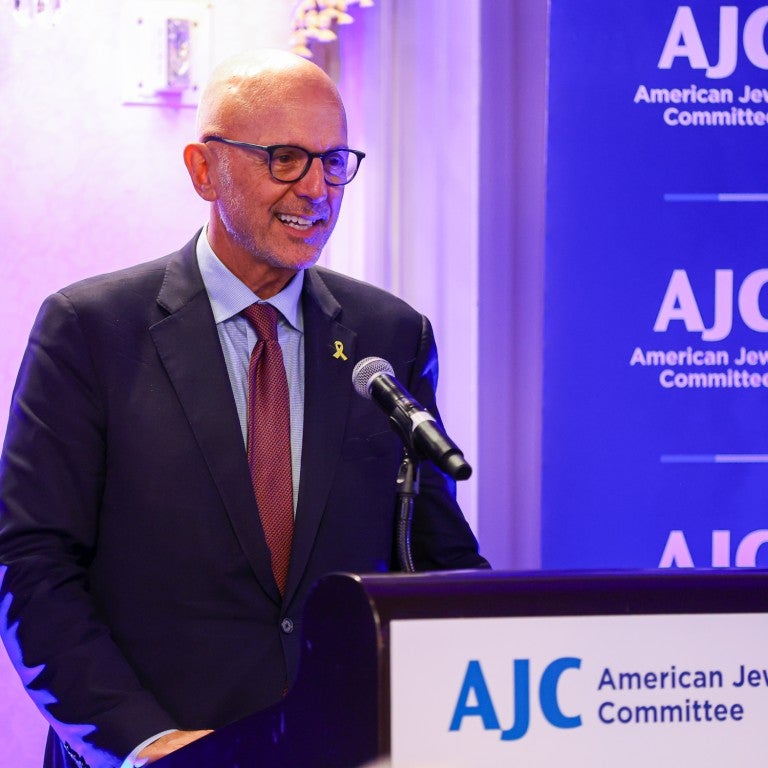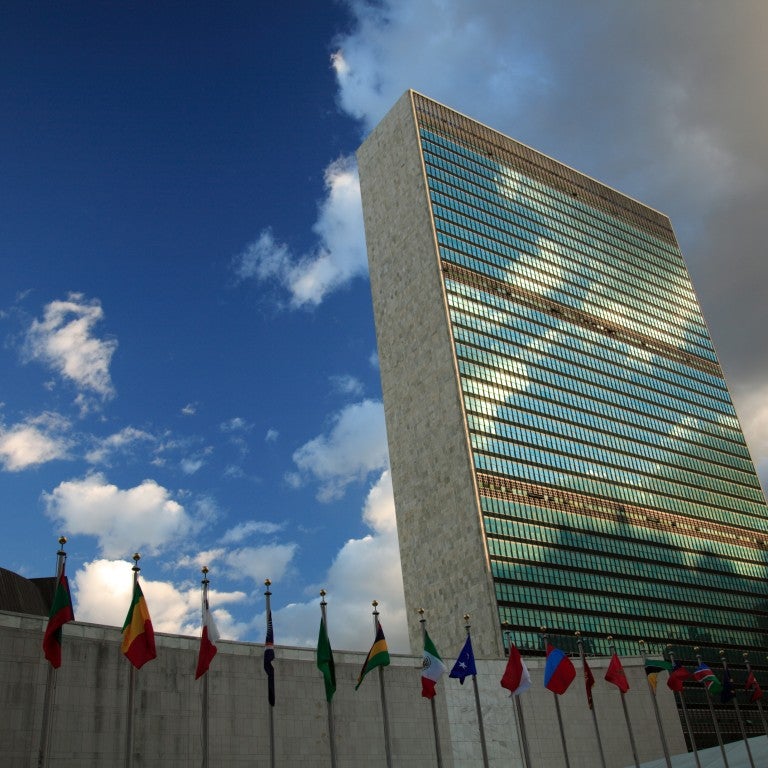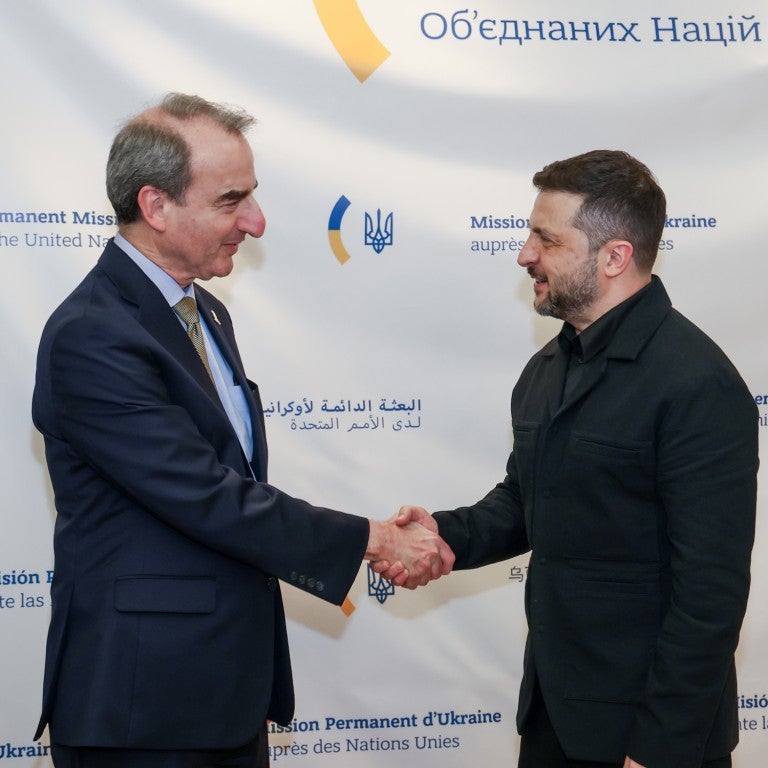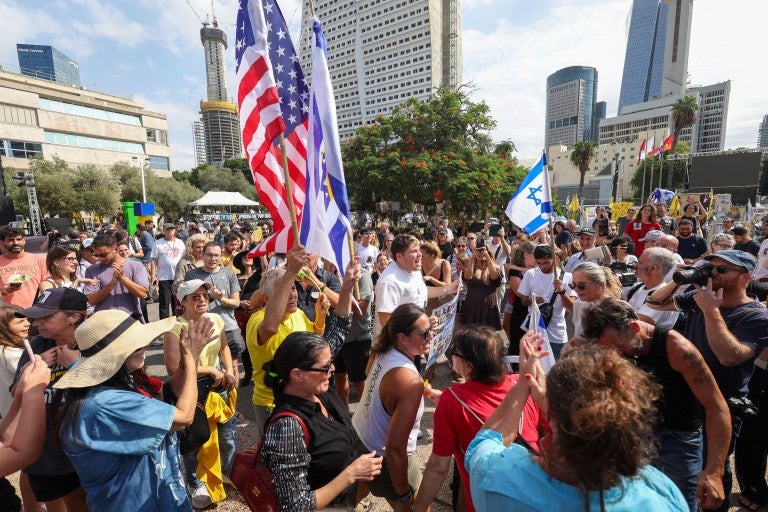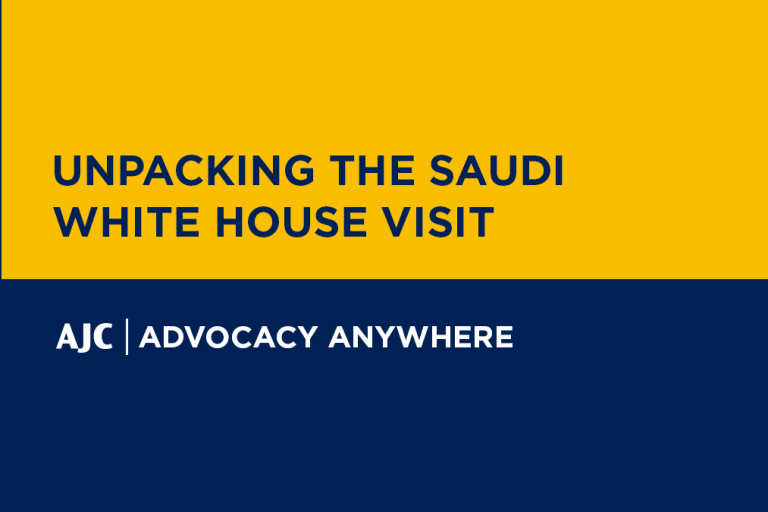October 6, 2025
This piece originally appeared in The Algemeiner.
This year’s session of the United Nations General Assembly opened on Rosh Hashanah. I arrived in a somber mood: France’s unilateral recognition of the State of Palestine — echoed soon by others — had the potential to trigger an inexorable escalation between two camps: Europe and the UN on one side, and Israel and the US on the other.
This is the cynical strategy that Hamas has pursued since October 7, 2023: draw Israel into a war that would ultimately delegitimize it on the international stage.
The Palestinian Authority (PA), by other means, is chasing the same end. Recognizing a state of “Palestine,” in this environment, is a gift to the regimes in power Hamas on one side, the PA on the other — and an affront to those truly committed to a better future for the region.
The week of diplomatic meetings and speeches at the UN unfolded across the days between Rosh Hashanah and Yom Kippur — a time of introspection, judgment, and renewal. Throughout our meetings, I was reminded that reality is never as binary as it may seem, and that fatalism is not — and can never be — a Jewish posture.
In the corridors of multilateral diplomacy, escape routes began to appear: frank glances, sincere handshakes, whispered confidences that can carry more weight than thundering declarations.
Ukrainian President Volodymyr Zelensky emerged confident from his meeting with President Donald Trump, who for the first time explicitly held out the prospect of “victory” for Ukraine — perhaps a sign that old alliances are finally snapping back into place. No less significant is the long awaited, increasingly open alignment between Israel and Ukraine. The Baltic states — Latvia foremost — say it plainly: their own security, also threatened by Vladimir Putin, requires a strategic partnership not only with the United States but also with Israel, notably to acquire some of the most sophisticated anti‑drone detection systems — a goal set for year‑end.
This realignment gives us reason to hope again: could the geopolitical chessboard at last be stabilizing? When we exchanged Shana Tova greetings with President Zelensky, we could feel the hope — and the prospect — of a shared victory in the year ahead: for Ukraine, for the Jewish people, and for Israel.
Which brings us back to the issue of recognition. In New York and across European capitals, many headlines proclaimed Israel’s historic isolation. That emerging isolation is real — but it is not all encompassing, and it demands context. Allies still exist, including in Europe. Those who have faced war against ruthless enemies — like a senior Bosnian official we met, a former soldier in the 1993 war, or those in the East living under the constant threat of a hostile neighbor — understand intimately what a small, encircled state like Israel endures.
Others farther afield are speaking up as well, especially in sub‑Saharan Africa. From Guinea‑Bissau to the Democratic Republic of the Congo under President Félix Tshisekedi, whom we met for the first time, there is a tangible desire to accelerate development through stronger partnerships with the United States and Israel — across agriculture, health, energy, and cybersecurity. These are not empty promises; they are roadmaps. Foundations are being laid for durable friendships on a continent that, by 2050, is projected to account for a quarter of the world’s population.
At American Jewish Committee (AJC), by maintaining and broadening high‑level dialogue, and by continuing to open new doors for Israel and the Jewish people, we are rekindling the realm of the possible where others insist there is no way out. Ours is a diplomacy that repairs rather than flatters: it demands effectiveness to move history forward and rests on long‑term loyalty and active patience.
Against the odds — just when this UNGA week seemed poised to widen the growing chasm between Israel and Europe — a path toward peace and stability began to emerge.
As world leaders continued to meet in New York, President Trump, speaking at the White House after conferring with Prime Minister Netanyahu, announced a plan that could bring an end to the Israel-Hamas war, bring the hostages home, and secure a more peaceful, prosperous future for civilians in Gaza. The plan, as of this writing, has been welcomed by the European Council and already garnered support across the Arab and Muslim-majority world.
The road ahead will be long and the obstacles immense, but we have learned to draw hope from darkness. That is our task — and, I believe, our victory.
